During its first meeting, held in Sevilla, Spain, the Working Group formulated recommendations for a Programme of Work on Article 8(j), which was subsequently adopted at the COP 5 in May 2000, with the Decision V/16.
The Programme of Work aims to promote an implementation of Article 8(j) and related provisions and to ensure the full and effective participation of indigenous and local communities at all stages and levels of this implementation.
The Programme of Work represents the main instrument the Parties have given themselves to fulfill the commitments in Article 8(j) and constitutes a guide for the implementation of TK protection within the CBD context.
The Programme sets some objectives based on the following principles:
- Full and effective participation of indigenous and local communities in all stages of the identification and implementation of the elements of the programme of work. Full and effective participation of women of indigenous and local communities in all activities of the programme of work.
- Traditional knowledge should be valued, given the same respect and considered as useful and necessary as other forms of knowledge.
- A holistic approach consistent with the spiritual and cultural values and customary practices of the indigenous and local communities and their rights to have control over their traditional knowledge, innovations and practices.
- The ecosystem approach is a strategy for the integrated management of land, water and living resources that promotes conservation and sustainable use of biological diversity in an equitable way.
- Access to traditional knowledge, innovations and practices of indigenous and local communities should be subject to prior informed consent or prior informed approval from the holders of such knowledge, innovations and practices.
The Decision V/16 identifies two phases of the programme and indicates different tasks to be implemented by the Parties, the Secretariat and the Working Group.
The tasks of the first phase of the Programme include the development by the Parties of mechanisms to enhance and strengthen the participation of indigenous and local communities in decision-making related to traditional knowledge, innovations and practices relevant to the conservation and sustainable use of biodiversity. The participation must be ensured by appropriate initiatives at international, regional, subregional, national and local levels, including access and benefit-sharing and the designation and management of protected areas.
The Decision contains a specific reference to women’s participation in all elements of the Programme of Work, taking into account the need to:
(a) Build on the basis of their knowledge;
(b) Strengthen their access to biological diversity;
(c) Strengthen their capacity on matters pertaining to the conservation, maintenance and protection of biological diversity;
(d) Promote the exchange of experiences and knowledge;
(e) Promote culturally appropriate and gender-specific ways in which to document and preserve womens knowledge of biological diversity.
Other tasks indicated by the Programme today are considered as completed, while others have been postponed.
Among the completed tasks we consider:
- The elaboration of a composite report on status and trends regarding TK [completed: Decision IX/13 B paragraph 1]
- The identification of a focal point within the Clearing-House Mechanism [completed: Decision VII/16 G];
- The development of models for codes of ethical conduct for research, access to, use, exchange and management of information concerning TK [completed: the Tkarihwaié:ri Code of Ethical Conduct was adopted in Decision X/42];
- The development of guidelines for the conduct of cultural, environmental and social impact assessments regarding developments proposed to take place on, or which are likely to impact on, sacred sites and on lands and waters traditionally occupied or used by indigenous and local communities [completed: Akwé: Kon Guidelines adopted in Decision VII/16 F].
The postponed tasks, pending completion of current tasks, and in light of ongoing developments are:
- The development by Working Group of guidelines for the respect, preservation and maintenance of traditional knowledge, innovations and practices and their wider application in accordance with Article 8(j);
- The development by the Working Group of a set of guiding principles and standards to strengthen the use of TK and other forms of knowledge for the conservation and sustainable use of biological diversity, taking into account the role that TK can play with respect to the ecosystem approach, in situ conservation, taxonomy, biodiversity monitoring and environmental impact assessments in all biodiversity sectors;
- The development by the Working Group of guidelines and proposals for the establishment of national incentive schemes for indigenous and local communities to preserve and maintain their traditional knowledge, innovations and practices and for their application in national strategies and programmes for the conservation and sustainable use of biological diversity;
- The assessment by the Working Group of existing subnational, as appropriate, national and international instruments, particularly intellectual property rights instruments, that may have implications on the protection of the knowledge, innovations and practices of indigenous and local communities with a view to identifying synergies between these instruments and the objectives of Article 8(j);
- The development by the Executive Secretary, in cooperation with governments and indigenous and local communities, of methods and criteria to assist in assessing the implementation of Article 8(j) and related provisions at the international, regional, national and local levels, and reporting of such in national reports in conformity with Article 26.
Photo credit: United Nations Photo on Visualhunt / CC BY-NC-ND
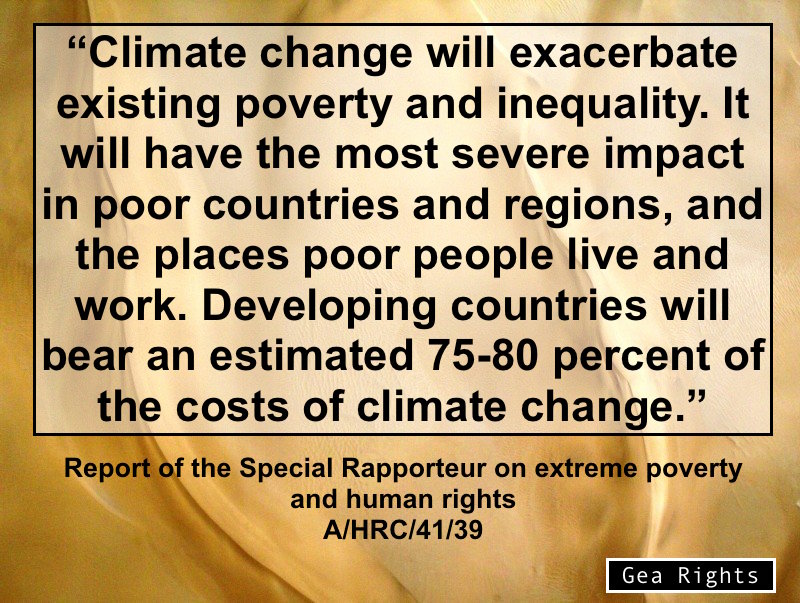
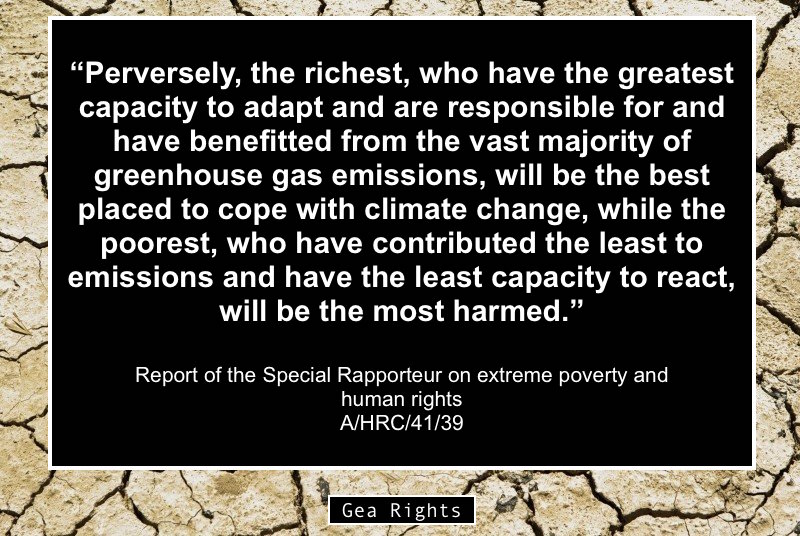
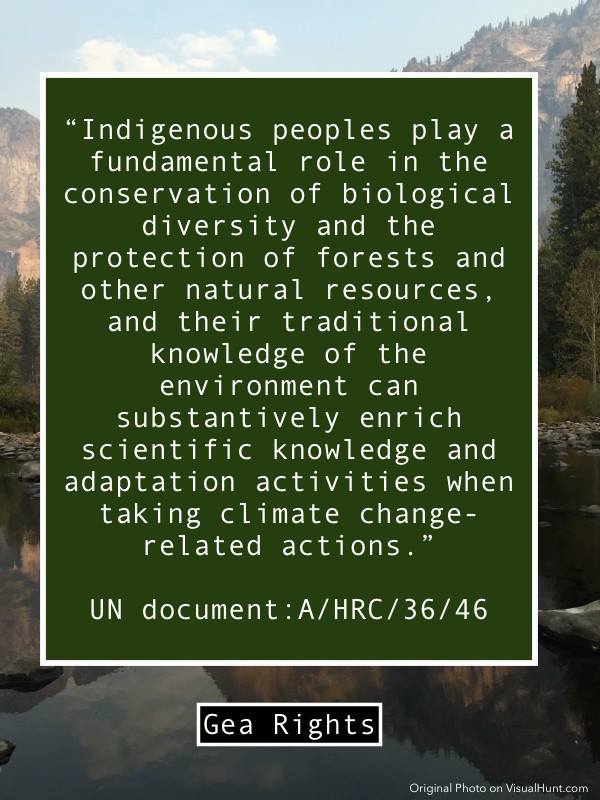
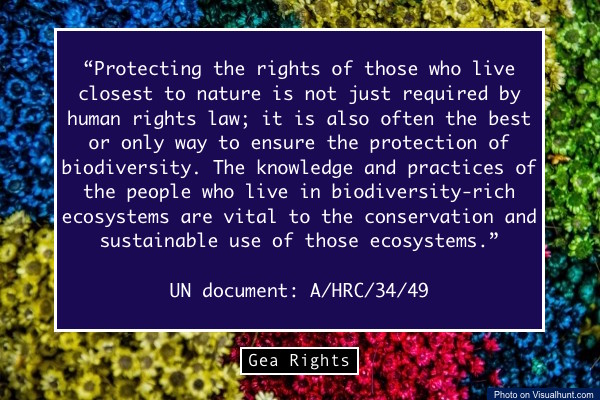
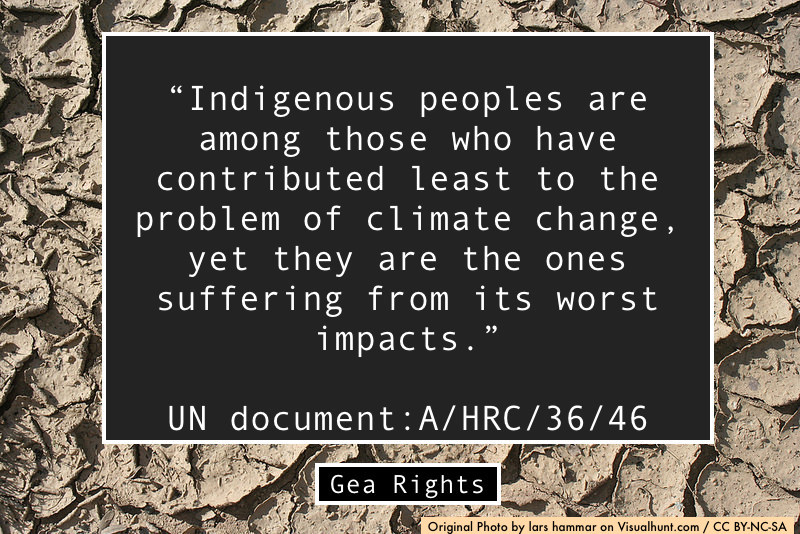
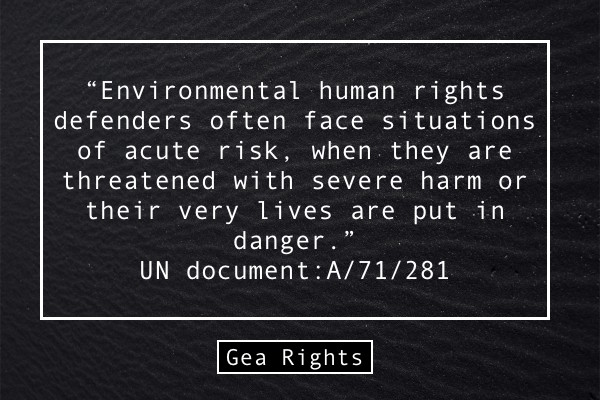
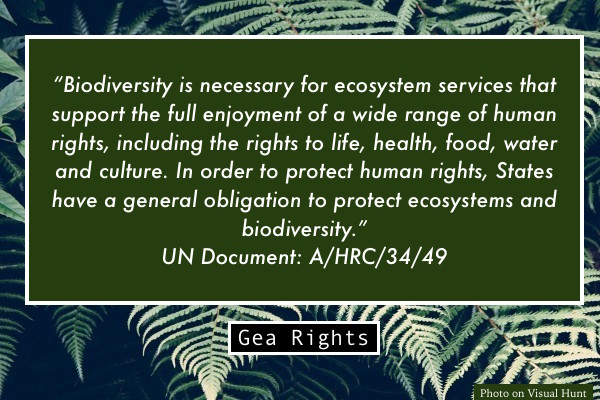
Leave a Reply